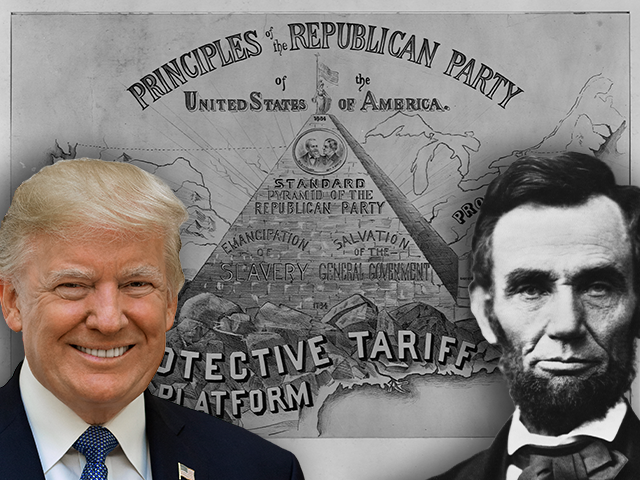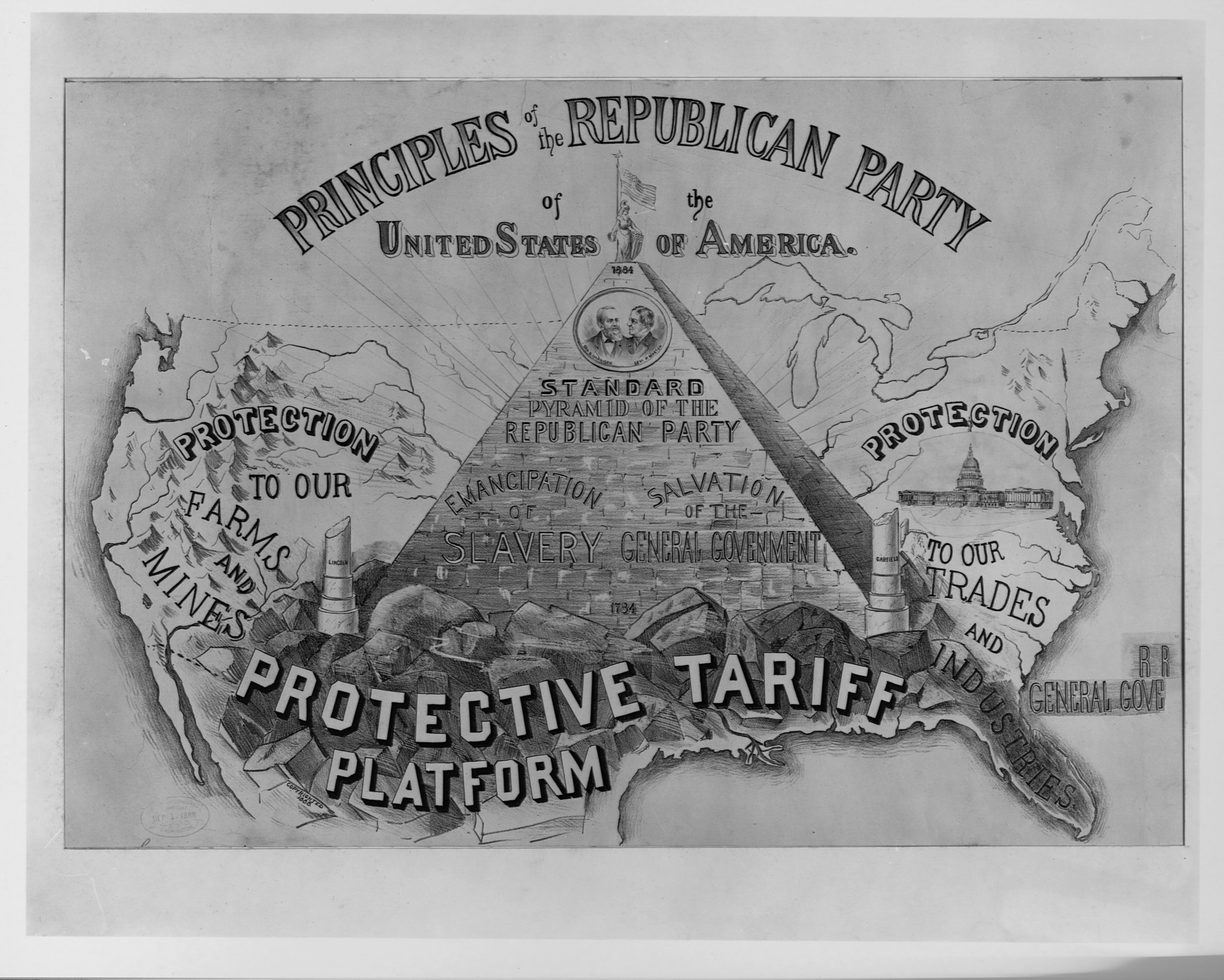Breitbart Business Digest: The GOP Returns to Its Roots as the Party of Tariffs
 Library of Congress/Corbis/VCG via Getty Images
Library of Congress/Corbis/VCG via Getty Images
The Grand Old Party of Tariffs
The Republican Party has returned to its traditional stance in favor of tariffs and economic nationalism.
Historically, the Republican Party was the staunch champion of tariffs, a cornerstone of its economic platform dating back to its founding in the mid-19th century. The GOP’s support for protective tariffs was rooted in its alliance with Northern manufacturers and industrialists, who sought to shield emerging American industries from foreign competition. Tariffs, such as the Morrill Tariff of 1861, became synonymous with Republican economic policy, funding government initiatives while fostering domestic production.

An election poster depicts the pro-tariff principles of the 1888 Republican Party. (Library of Congress/Corbis/VCG via Getty Images)
The Republican Party’s shift away from its historical support for tariffs began in the mid-20th century as the U.S. sought to bolster the economic strength of our allies as part of the strategy of containing and eventually overcoming tariffs. Republican leaders like Dwight Eisenhower and Richard Nixon embraced the free trade as a strategic bulwark for the U.S., backing institutions like the General Agreement on Tariffs and Trade, which sought to lower trade barriers worldwide.
The strategy was simple. The U.S. absorbed the productive surpluses of Europe and Japan in order to bolster their economic strength. We largely turned a blind eye to their own protectionist measures, including the creation of the massive protectionist zone known as the European Union. This was effectively a tax on our working class—but one that was seen as a price worth bearing to avoid communist domination or war with the Soviet Union.
The Fall of the Berlin Wall and the End of the Globalist Consensus
But the end of the Cold War triggered a rethinking of America’s trade policy. Why should America continue to play the role of propping up foreign economies now that the Soviet menace had passed from the scene? What’s more, the strategy failed dramatically in the case of China. Instead of encouraging China to join the loose league of free nations around the globe, opening trade with China cemented the hold of the communist regime and allowed it to pursue predatory mercantilism that sapped the U.S. of domestic industrial capacity with no offsetting strategic or economic benefits.
It took some time for the conservative movement and Republicans to purge themselves of the attachment to the Cold War global trade regime and the rhetorical stances deployed to support it. There were a great many dead-enders who fought bitterly against returning America and the Republican Party to its economic nationalist roots. The scars of the battles against the rear-guard of globalism are still borne by those who supported Ross Perot and Pat Buchanan three decades ago.
Building the Tariff Wall 10 Feet Higher
Now, however, there’s little doubt as to where the GOP stands. New polling from Echelon Insights finds that 71 percent of Republicans say they support Trump’s tariff proposals, including 41 percent who say they “strong[ly] support” the tariffs. Among conservatives, 70 percent support tariffs, with 43 percent strongly supporting. Opposition is barely a rump element on the right: just 10 percent of Republicans and 11 percent of conservatives oppose tariffs. If we narrow it down to those who strongly oppose tariffs, it is only four percent of Republicans and five percent of conservatives.
Support for tariffs was nearly the defining feature of Trump supporters. Seventy-four percent of those who supported Trump in the last election favor tariffs. Among Republicans who say they voted for Trump, 82 percent support tariffs.
The old politics of tariffs are not the new politics of tariffs. Traditionally, the protectionist stance of the GOP contrasted sharply with the free trade preferences of Southern Democrats, who prioritized agricultural exports. Today, however, rural Americans are among the most likely to support tariffs. Forty-eight percent of rural Americans support tariffs, compared with 39 percent of cityfolk and 40 percent of suburbanites.
Even more surprisingly, Americans with graduate degrees are more likely to support tariffs than Americans with a high school education or less. But almost every educational demographic and every income group is more likely to support tariffs than oppose them. The only exception is Americans with incomes under $30,000, who oppose tariffs 39 percent to 34 percent.
The election of 2024 marked a major shift in American politics. And that is very clear in this titanic shift in our opinions over trade—especially among Republicans and conservatives.
Source link

